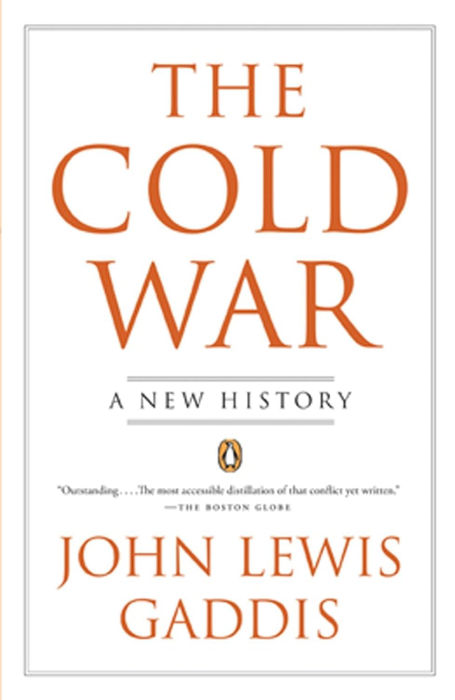Books
John Lewis Gaddis
The Cold War
A New History
John Lewis Gaddis’s The Cold War: A New History is widely acclaimed as the most accessible and comprehensive account of the global conflict that shaped the second half of the twentieth century. Drawing on newly opened archives and the recollections of key figures, Gaddis unpacks not only what happened during the Cold War, but also why it unfolded as it did, weaving together political, ideological, and military dimensions into a lucid, engaging narrative.
Gaddis defines the Cold War as a worldwide struggle between two opposing ideologies—American capitalism and Soviet communism—each vying for influence far beyond their own borders. He traces the origins of the conflict to the immediate aftermath of World War II, when the U.S. and the Soviet Union transitioned from uneasy allies to global rivals. The book explores pivotal moments such as the Berlin Blockade, the Korean and Vietnam Wars, the Cuban Missile Crisis, and the era of détente, showing how superpower competition played out through proxy wars, arms races, and diplomatic maneuvering.
A central theme is the role of leaders—Stalin, Truman, Kennedy, Khrushchev, Reagan, and Gorbachev—whose decisions, convictions, and miscalculations shaped the course of events.Gaddis also highlights the emergence of autonomy among smaller nations and the influence of nuclear weapons, which created a precarious balance of power and deterred direct conflict between the superpowers. The narrative culminates in the collapse of the Soviet Union, crediting both Western strategies and internal Soviet weaknesses for the peaceful end of the Cold War.
Gaddis’s thematic approach, rather than strict chronology, allows for a nuanced exploration of the Cold War’s complexities, including the persistent fear, hope, and agency of both leaders and ordinary people. While some critics note a pro-American bias, the book is praised for its clarity, depth, and ability to make sense of a conflict that defined an era and continues to shape international relations today.

